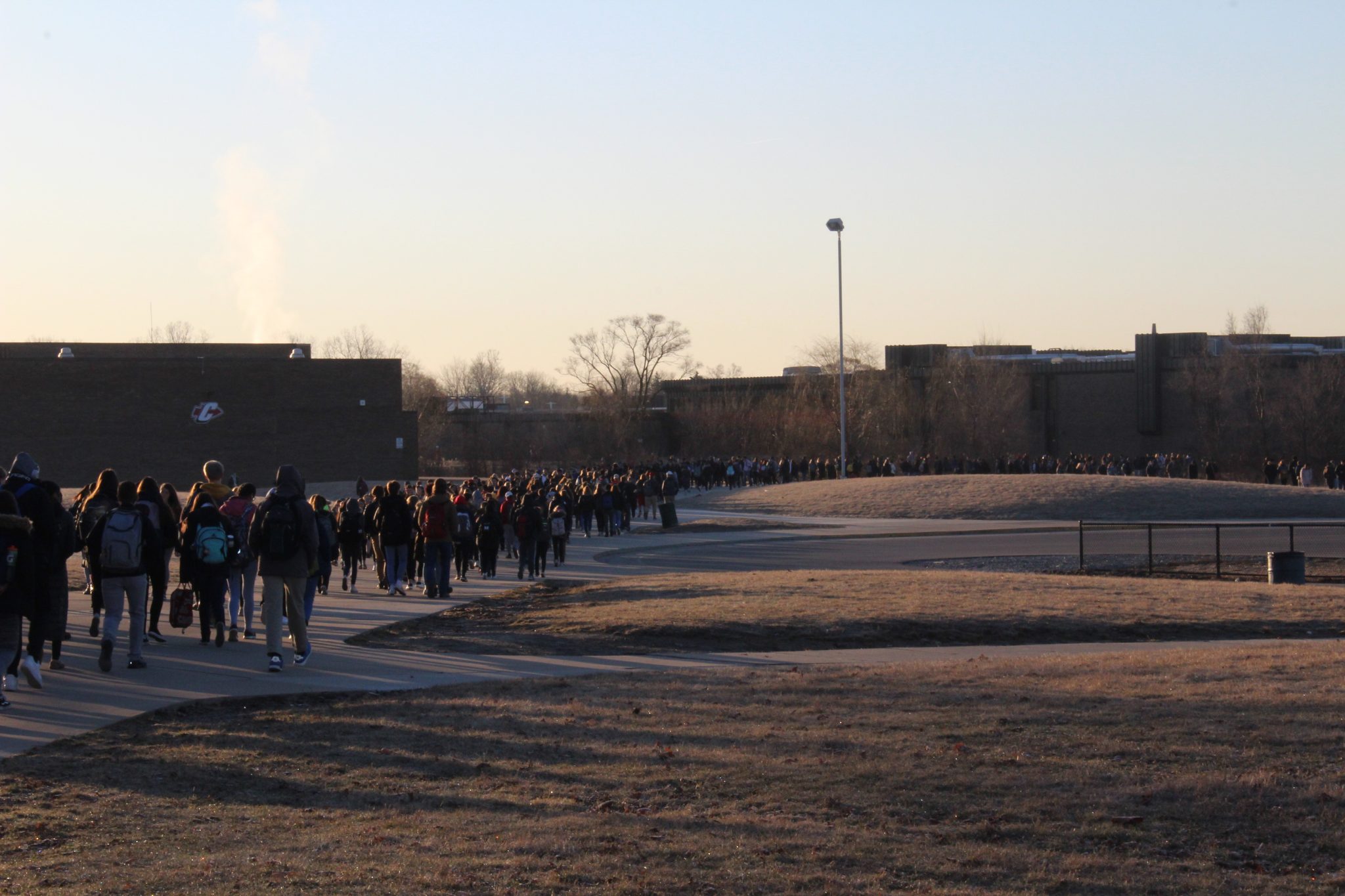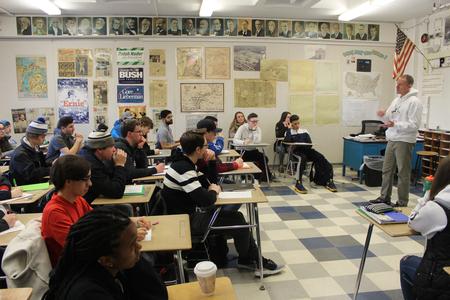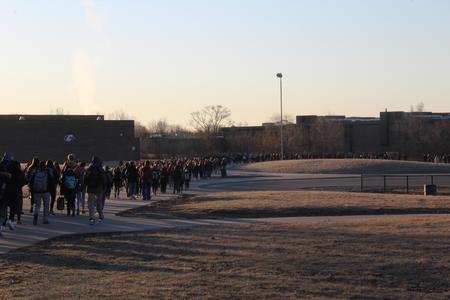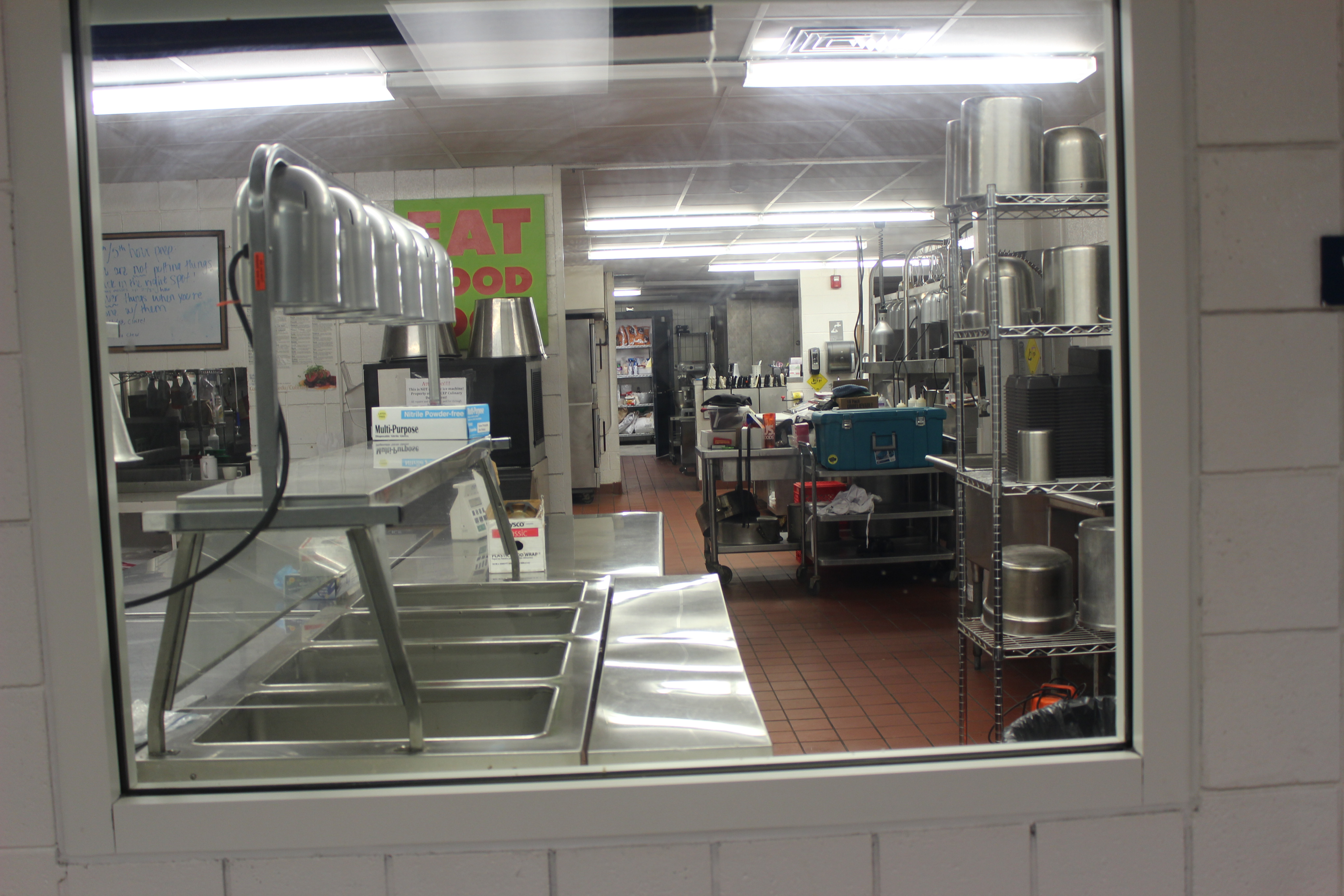Three Schools, One Campus: Plymouth-Canton Community Schools Offer a Unique High School Experience
Canton’s unique high school campus give students a wide range of opportunities and a college-like experience.


This is not your typical high school. In fact, it’s not one high school – it’s actually three. Salem, Canton and Plymouth High Schools make up the Plymouth-Canton Educational Park, commonly referred to as “P-CEP” or “The Park.”
When you step onto “the Park” it feels like you are stepping onto a mini college campus.
Instead of switching classes in hallways, students are moving between buildings.
Nick Brandon is the executive director of communications at Plymouth-Canton Schools District. He says placing three high schools on one campus was not part of the original plan for the area.
“Salem High School was built. This area of land that was purchased by the school district allowed for a second high school to be built,” Brandon says. “And the thought was for synergy and convenience, let’s build a second school. And Canton High was built.”
In the ’90s both schools became crowded and so Plymouth High School was built on the same land.
“So, it was never the original vision or this grand idea. But the land really allowed for that,” Brandon says. “Plus, one of the really great aspects of this place is it’s in the central location of our community.”
P-CEP serves Plymouth Township, the City of Plymouth, and Canton Township.

Six times a day, more than 6,200 students can be seen moving from one high school to the next for class.
Some classes are only available in certain buildings. So, if a student wants to take that class, they must go to that building.
Each building has its own curriculum. Salem is home to the arts, Canton is home to Career and Technical Education and STEM programs and Plymouth is home to the International Baccalaureate Academy.
Jerry Brewer, a senior at Salem High School, says he values the variety of classes offered.
“Being able to explore all these different classes that we can take, these different ranges of careers we have, and with a set of required classes… it’s kind of disappointing that we can’t take more of these wide-ranging opportunities that we are given,” Brewer says.
The opportunity to explore different skills and interests at these schools allows for more than 100 school clubs to exist.
Gurrekmann Gill is a senior at Plymouth. He says students are interested in just about anything and there is a club for just about everyone.
“The wide range of opportunity to explore your certain interests or go excel in learning as well is, I guess you could say, higher than other public schools just because we have so many students that you find other people alongside,” Gill says.

Students also can gain hands-on experience in their interests. Salem houses a full-service student-operated restaurant called Rock Café. Staff can pay to eat there, and the money goes into the culinary arts program.

At Canton High School, faculty and township residents can bring their cars to the school’s full functioning auto shop. Customers just pay for parts and students learn how to fix cars.
And each school has a store fully run by students in the marketing program.
Students can focus on any track they want, be it art, industrial or international.
Salem, Canton and Plymouth each serve as “home schools.” For example, Salem students collect their report cards in that building and have that name written on their high school diplomas. But what really separates the schools are the three athletic teams: The Salem Rocks, the Canton Chiefs and the Plymouth Wildcats. Nick Brandon says watching the rivalries between the schools can be interesting.
“You go to smaller towns with single high schools and everyone is rooting for the same team,” Brandon says.
“Here on a given day, you might have the two quarterbacks from opposing teams that are going to play that night sitting in class together. It’s totally unique.”
Most high schools allow five minutes to travel between classrooms. At “The Park” it could take as long as seven minutes just to walk from one school to another. For that reason, P-CEP allows 10 minutes between classes.
And it sounds like the students really need that opportunity. With 6,200 students on the campus, Plymouth senior Gurrekmann Gill says it can be difficult getting to know your classmates.
“I can’t even name more than half the kids in my class,” Gill says.
“If I have 30 people in my class, with this big of a school, the least that can happen is for me to know those people in that class.”
Salem senior Jerry Brewer agrees.
“You’ll meet someone freshman year in one class and you’ll never have a class with them again,” Brewer says.
But Michaelanne Monet, a Salem junior, says there are some benefits to having a large student population.
“I’d say there are pros and cons about having so many people at this school. You lose all your friends every year, but you gain more friends every year,” Monet says.
Plymouth Assistant Principal Amy Willaker-Brown says she once asked her students, “Who owns this school? Who is the dominant social group?” And there wasn’t a definite answer.
“When you have such a large population, nobody can really consolidate power,” Willaker-Brown says. “And everybody can find their own place where they are the ‘in’ group.”
Willaker-Brown says other than the career tracks offered at the individual buildings, the schools are not too much unlike each other.
But the Plymouth-Canton Educational Park is like no other high school campus in the state.
Why did we choose Canton? Canton was selected as a featured area for Crossing the Lines due to its dramatic economic and developmental growth, as well as its rapidly increasing diversity.

